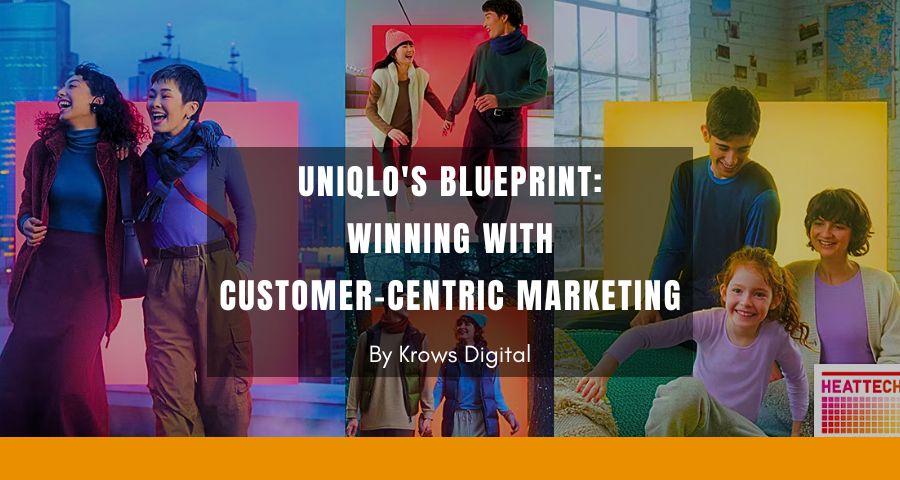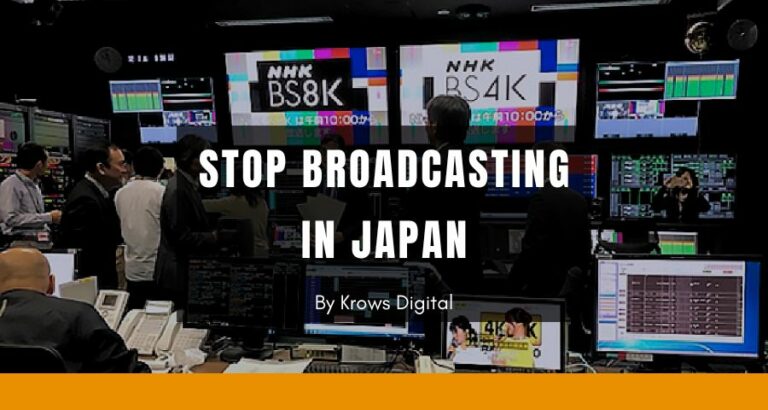Uniqlo, a powerhouse in the global retail fashion industry, stands out not just for its fashionable clothing but for its sharp focus on customer-centric marketing strategies. This approach prioritizes the needs and preferences of its customers at every touchpoint, ensuring that they receive personalized and meaningful interactions that foster loyalty and satisfaction.
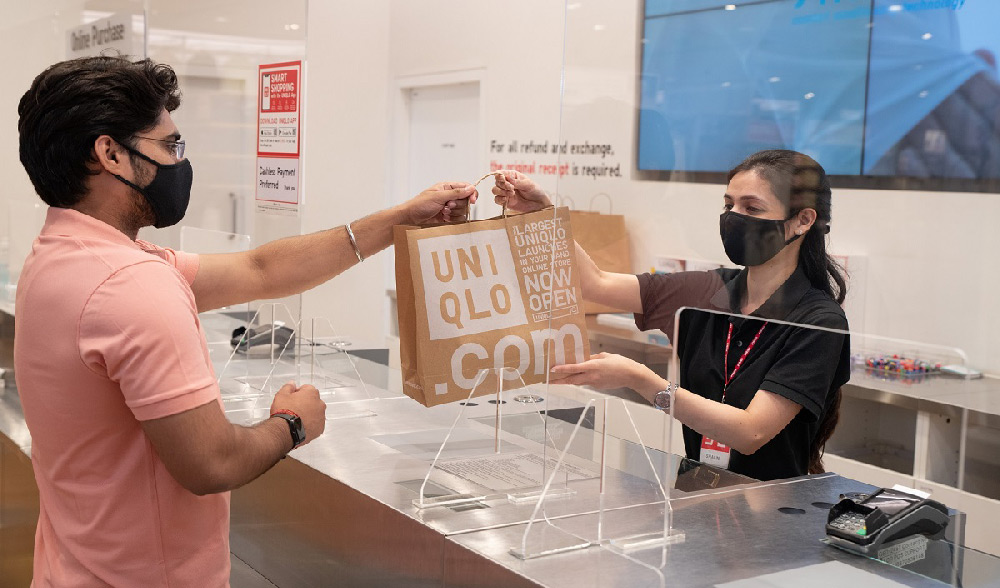
Understanding Customer-Centric Marketing
At its core, customer-centric marketing revolves around tailoring marketing strategies to meet the unique needs of the customer. This method involves thorough research to understand customers' preferences and designing products and services that cater specifically to those needs. For Uniqlo, this strategy has been a key to unlocking significant market growth and customer loyalty.
Uniqlo’s Brand Philosophy: "Made for All"
Core Values and Inclusivity
Uniqlo's brand philosophy, "Made for All," encapsulates its commitment to providing high-quality, functional, and accessible fashion that transcends traditional boundaries such as age, gender, ethnicity, and social status. This guiding principle is not just a marketing slogan; it is deeply ingrained in every aspect of Uniqlo’s operations, from design and manufacturing to marketing and customer service.
The core of Uniqlo’s identity revolves around simplicity, quality, and longevity. The brand focuses on essential items that serve the basic needs of all individuals, ensuring that each product is designed with universal standards that cater to a diverse customer base. This approach not only promotes inclusivity but also emphasizes the brand's dedication to sustainability and ethical practices by producing durable garments that last longer.
Mission to Democratize Fashion
Uniqlo's mission goes beyond just selling clothes; it aims to democratize fashion by breaking down the barriers that typically segment markets. By offering high-quality garments at affordable prices, Uniqlo makes fashionable and functional attire accessible to everyone, regardless of their economic status. This democratization is a critical element of their customer-centric approach, ensuring that every individual can experience and afford the value of well-crafted apparel.
Vision of Global Harmony
The vision that propels Uniqlo forward is one of global harmony through clothing. By creating garments that cater to basic human needs and embracing diversity, Uniqlo fosters a sense of unity and collective identity. This vision is reflected in their global expansion strategy, where they tailor their offerings to blend seamlessly into the lives of people in various countries, respecting local cultures while promoting a global outlook.
Sustainability and Responsibility
Aligned with its philosophy of "Made for All," Uniqlo takes a responsible approach to fashion, emphasizing sustainability in its business practices. This is evident in their choice of materials, production processes, and waste management. Uniqlo strives to minimize its environmental impact and maximize efficiency by using eco-friendly materials and advanced technologies that reduce water usage and emissions.
Moreover, Uniqlo is proactive in its social responsibilities, participating in community activities and global initiatives that promote health, education, and disaster recovery. These efforts are part of a broader commitment to social value creation, reinforcing the brand’s philosophy of serving the wider community and contributing positively to society.
Innovative Spirit
At the heart of Uniqlo’s philosophy lies an innovative spirit that continually seeks to improve and revolutionize the fashion industry. From HEATTECH to AIRism technologies, Uniqlo’s innovations are not just about staying ahead of the competition but about enhancing the everyday lives of its customers. This focus on innovation ensures that the brand remains relevant and continues to deliver products that meet the evolving needs of its global audience.
In conclusion, Uniqlo’s brand philosophy of "Made for All" drives its quest to enrich lives through thoughtful, inclusive, and innovative fashion. By adhering to this philosophy, Uniqlo not only sets itself apart in the competitive retail market but also builds a loyal customer base that resonates with its values and vision for a better world.
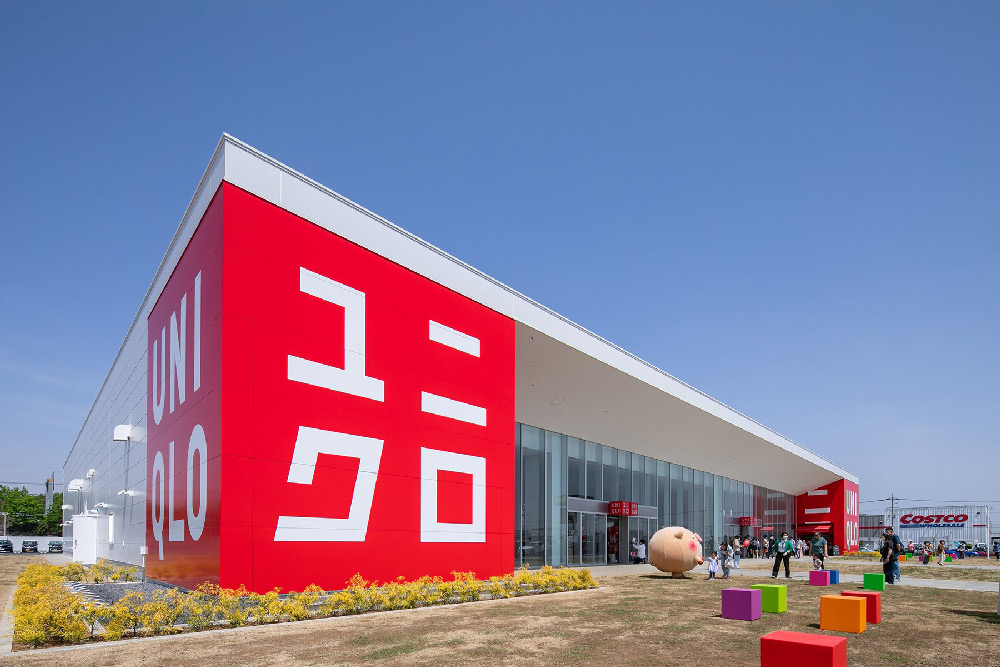
Market Research Techniques
Uniqlo’s commitment to understanding its customers is evident in its robust market research efforts. It regularly utilizes customer surveys, feedback forms, and purchase data to analyze consumer behavior and preferences, ensuring that its product development and marketing strategies are well-informed and targeted.
Product Strategy
Uniqlo's products are known for their simplicity, quality, and longevity. The brand focuses on essential items made better with superior fabric and functional designs at reasonable prices. This focus on high-quality, affordable, and inclusive products allows Uniqlo to cater to a broad audience worldwide.
Pricing Strategy
In the realm of pricing, Uniqlo employs a competitive pricing strategy that aligns with its customer-centric approach. It uses psychological pricing to make the cost of items appear more attractive, thus enhancing the perceived value of their products.
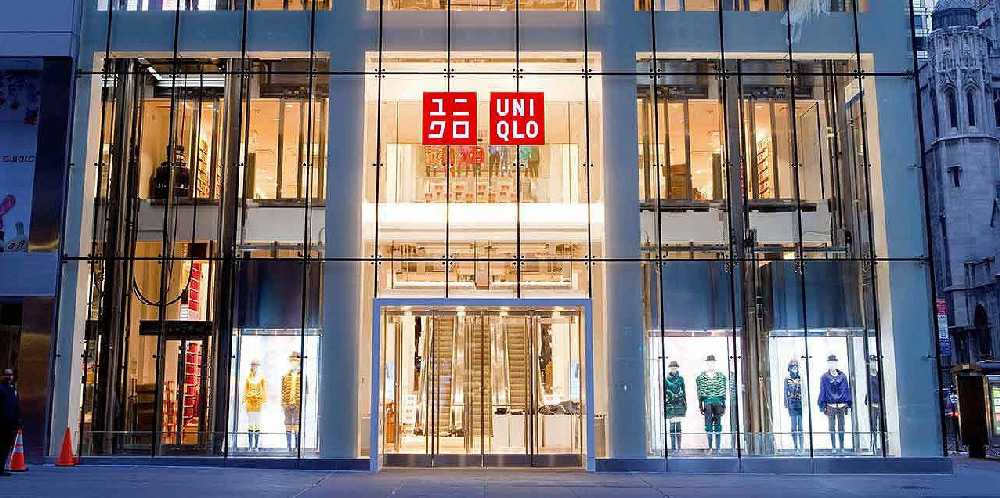
Place and Distribution
Uniqlo’s strategic store placements are another cornerstone of its marketing strategy. By selecting accessible and high-traffic locations for its stores, both in physical and digital spaces, Uniqlo ensures that it remains at the forefront of consumer minds.
Promotional Strategies
Through creative and diverse advertising campaigns, Uniqlo engages with its audience in a meaningful way. Its collaborations with influencers and celebrities who resonate with its brand values amplify its reach and relevance in the fashion industry.
Customer Engagement Tactics
Loyalty programs and community-building efforts are crucial in Uniqlo’s strategy. By rewarding repeat customers and creating a sense of community, Uniqlo enhances customer loyalty and encourages regular interaction with the brand.
Technology and Innovation
Uniqlo leverages technology by integrating AI into customer services, which streamlines shopping experiences and enhances customer satisfaction. Innovations in product design, such as Heattech clothing, also keep the brand at the cutting edge of the retail market.
Sustainability as a Marketing Tool
Uniqlo has increasingly integrated sustainability into its marketing strategy, recognizing that modern consumers value eco-friendly practices. This commitment not only helps the environment but also boosts the brand's image and appeal.
Case Studies: Uniqlo’s Strategic Wins and Learning Opportunities
1. Global Flagship Store Launches: A Success Story
One of Uniqlo's most effective strategies has been the launch of flagship stores in major cities around the world, such as New York, Paris, and Tokyo. These stores are not just retail locations but are designed as brand showcases that embody the essence of Uniqlo’s innovative spirit and commitment to quality. For example, the Fifth Avenue store in New York City helped establish Uniqlo as a global brand ambassador of Japanese quality and functional style. The extensive media coverage and the store’s strategic placement in a high-traffic area attracted a large number of visitors, significantly boosting brand awareness and sales figures in the U.S. market.
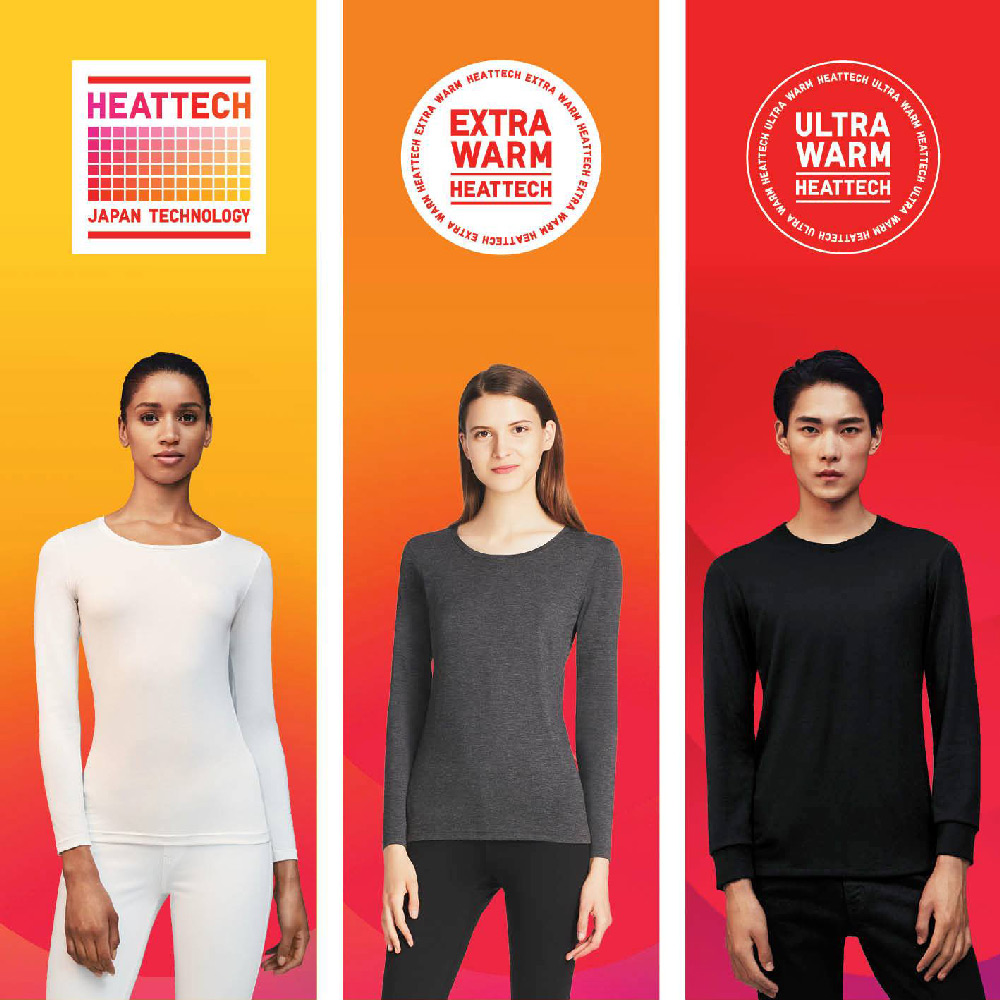
2. The "Heattech" Innovation: Revolutionizing Comfort
Uniqlo's introduction of "Heattech" fabric technology is a prime example of how the company leverages product innovation to drive its market strategy. This line of clothing, developed in collaboration with material science company Toray Industries, offers unique fabric that captures heat and provides warmth without the bulk of traditional winter wear. The launch was accompanied by an educational marketing campaign that effectively communicated the benefits and science behind "Heattech" products. The campaign not only educated consumers but also positioned Uniqlo as a leader in technological innovation in apparel. As a result, "Heattech" became a staple product for the brand, with millions of units sold worldwide each year.
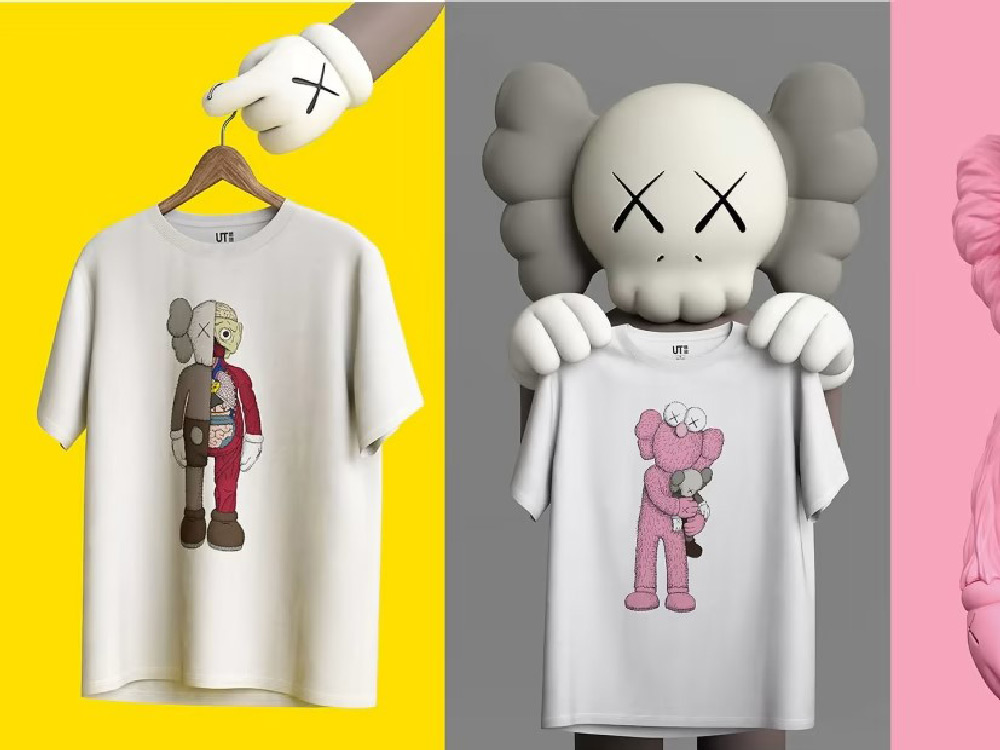
3. Uniqlo x KAWS Collaboration: Leveraging Pop Culture
In 2016, Uniqlo collaborated with the internationally renowned artist KAWS to create a limited edition line of t-shirts and accessories featuring designs of KAWS’ iconic characters. This collaboration was marketed through a viral social media campaign and exclusive in-store events, creating substantial buzz and anticipation. The collection sold out almost immediately upon release, with long queues at stores and items reselling for significantly higher prices online. This partnership not only drove immediate sales but also introduced Uniqlo to a broader, younger, and more style-conscious audience, illustrating the power of merging pop culture with brand offerings.
4. The Jil Sander Collaboration Misstep: A Learning Curve
Not all of Uniqlo’s strategic efforts have met with resounding success. The highly anticipated collaboration with designer Jil Sander in 2009, branded as +J, aimed to bring high-end fashion to everyday consumers at affordable prices. While the initial launch saw positive sales, subsequent collections did not perform as well, leading to diminished interest and sales over time. This case taught Uniqlo valuable lessons about consumer expectations and the challenges of sustaining interest in high-fashion collaborations over multiple seasons.
中村さんのViews用 ユニクロ エアリズムマスク発売20200626134622245_Data.jpg)
5. The "AIRism" Mask Launch During COVID-19
During the COVID-19 pandemic, Uniqlo demonstrated its ability to respond quickly to market needs by introducing the "AIRism" mask, which incorporates the brand’s breathable fabric technology. The masks were launched with the promise of comfort and protection, aligning with the public's increasing health consciousness. Despite initial logistical challenges and some consumer backlash over perceived marketing opportunism, the product eventually saw widespread adoption due to its comfort and functionality, demonstrating Uniqlo's capacity to adapt its innovation pipeline to meet emergent consumer needs effectively.
These case studies reflect Uniqlo’s dynamic approach to marketing and product strategy, highlighting both its successes in innovation and valuable lessons learned from less successful ventures. Each example underscores the importance of staying closely connected to consumer needs and market trends, a principle that remains at the heart of Uniqlo’s business model.
Comparative Analysis: Uniqlo Versus Its Competitors
Uniqlo, Zara, and H&M: Differentiating Through Unique Selling Propositions
Uniqlo stands in a distinctive position in the fashion retail industry, particularly when compared with its major competitors, Zara and H&M. Each brand follows a unique path that caters to specific market needs, but a detailed analysis reveals why Uniqlo often manages to carve out a niche for itself with its customer-centric approach.
1. Approach to Fashion
- Uniqlo: Focuses on universal, functional, and long-lasting basics that are essential to everyone’s wardrobe. Unlike its competitors, Uniqlo invests in fabric innovation and simplicity, which appeal to a broad demographic looking for quality and functionality in daily wear.
- Zara: Known for its fast fashion model, Zara excels in bringing the latest trends from the runway to the store in a matter of weeks. This strategy appeals to fashion-forward consumers who prioritize staying up-to-date with trends over durability or utility.
- H&M: Combines elements of fast fashion with a variety of styles at low cost. H&M targets price-sensitive consumers who are also looking for trend-oriented clothes, but it often struggles with sustainability issues due to the transient nature of its products.
2. Pricing Strategy
- Uniqlo: Utilizes a value-based pricing model that emphasizes quality and innovation at reasonable prices. This model supports its philosophy of "Made for All," making high-quality garments accessible to a wide audience.
- Zara: Employs market-based pricing, adjusting costs to match the latest trends and consumer willingness to pay. This can result in a range of prices that typically skews higher than Uniqlo for comparable basic items.
- H&M: Often undercuts the market with lower prices, aiming to attract more budget-conscious consumers. However, this sometimes comes at the cost of perceived lower quality compared to Uniqlo.
3. Innovation and Technology
- Uniqlo: Leads with technological advancements in textiles, such as HEATTECH and AIRism, which provide added value to consumers through enhanced comfort and functionality. Uniqlo’s consistent investment in R&D distinguishes it in a market often driven by style over substance.
- Zara: Invests in supply chain technology to improve its fast fashion turnover, focusing less on product innovation and more on operational efficiency to keep up with rapid fashion cycles.
- H&M: Has been incorporating more sustainable materials and practices into its production processes but still lags in the area of high-tech clothing innovations.
4. Sustainability
- Uniqlo: Strives for sustainability through durable products that outlast seasonal trends, reducing waste. Its commitment extends to ethical sourcing and reducing environmental impact across its supply chain.
- Zara: Has made efforts to increase sustainability, launching a "Join Life" collection that uses more environmentally friendly materials. However, the fast fashion model inherently promotes higher turnover and waste.
- H&M: Despite facing criticism for sustainability, it has initiated several environmental strategies, including a garment recycling program and goals for using 100% recycled or sustainable materials by 2030.
5. Global Market Penetration
- Uniqlo: Has a strategic approach to global expansion, focusing on large flagship stores in key cities to build brand presence before expanding further, which ensures stable growth and brand consistency worldwide.
- Zara: Rapidly expands into new markets with multiple store openings, leveraging its strong brand identity as a trendsetter to capture market share quickly.
- H&M: Also follows a rapid expansion strategy but often prioritizes volume over strategic placement, leading to inconsistent market performance.
In summary, while Zara and H&M focus on trend-driven, fast fashion strategies, Uniqlo sets itself apart with a commitment to quality, functionality, and sustainability. This comparative advantage not only defines Uniqlo’s brand identity but also aligns closely with the growing consumer demand for durable and ethically produced goods, securing its place as a leader in the global fashion industry.
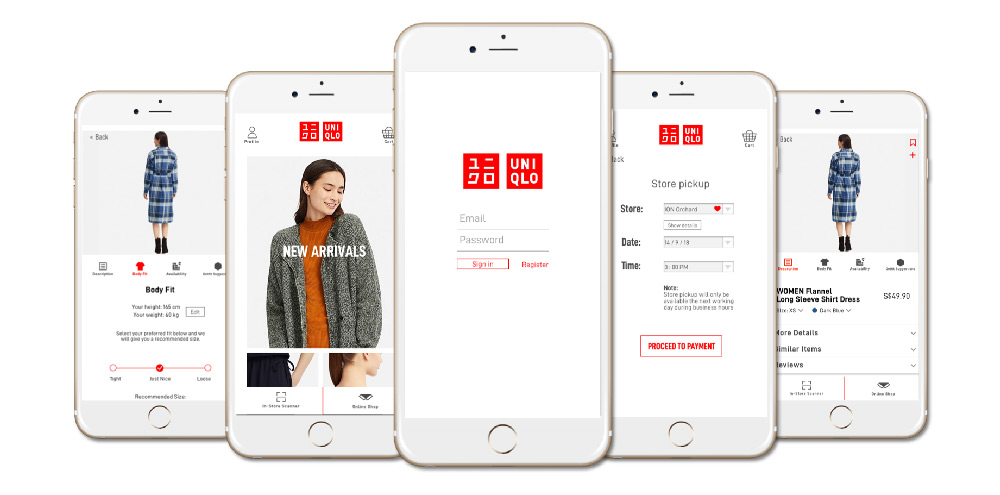
Future Trends in Customer-Centric Marketing: Insights for Uniqlo
As consumer preferences and technological landscapes continue to evolve, staying ahead in the retail industry requires a keen understanding of upcoming trends in customer-centric marketing. For a forward-thinking company like Uniqlo, these trends not only forecast changes but also offer opportunities to enhance its engagement strategies and maintain its competitive edge.
1. Personalization at Scale
- Advanced Data Analytics: The future of customer-centric marketing lies in leveraging big data and AI to achieve personalization at an unprecedented scale. For Uniqlo, this could mean more sophisticated use of customer data to tailor product recommendations, adjust pricing dynamically, and personalize marketing messages based on individual customer behaviors, preferences, and purchase histories.
- Customization of Products: As technology advances, so does the ability to offer customized products. Uniqlo could expand its use of online platforms to allow customers to personalize aspects of their clothing, such as color, material, or even design elements, thus enhancing the personal connection between the brand and its customers.
2. Seamless Omnichannel Experiences
- Integrated Shopping Journeys: Consumers increasingly expect a seamless integration between online and offline channels. For Uniqlo, refining omnichannel strategies could involve creating more fluid transitions between browsing online and experiencing products in-store, such as through AR (Augmented Reality) fitting rooms or instant online reservations for in-store pickups.
- Enhanced Customer Support: Utilizing AI for customer service, including chatbots and virtual assistants that can provide instant assistance across various platforms, will be crucial. This technology can guide customers through their shopping journey, offer personalized fashion advice, and handle customer service inquiries without human intervention.
3. Increasing Focus on Consumer Ethics
- Sustainable Practices: Sustainability will continue to dominate consumer preferences. Uniqlo can further capitalize on this trend by promoting its innovations in eco-friendly materials and processes, and by being transparent about its supply chain and labor practices. This will not only cater to ethically conscious consumers but also strengthen the brand’s market position as a responsible retailer.
- Inclusivity in Fashion: The call for greater inclusivity in fashion—across sizes, ages, and ethnicities—will guide future product lines. Uniqlo’s "Made for All" philosophy is well-aligned with this trend, and the brand can further enhance its offerings to cater to an even broader audience.
4. Leveraging Technology for Market Growth
- AI and Machine Learning: These technologies will become central to predicting market trends and consumer needs, potentially allowing Uniqlo to stay ahead of demand curves and manage inventory more effectively. AI can also enhance Uniqlo’s design processes, creating patterns and styles that align with emerging fashion trends identified through data analysis.
- Blockchain for Authenticity and Traceability: As consumers become more concerned about the authenticity of the materials and ethical manufacturing, implementing blockchain can provide a transparent system for tracking the lifecycle of a product. This could become a significant selling point for Uniqlo, reassuring customers of the quality and origin of their purchases.
5. Experiential Retail
- Enhancing Brand Experiences: The future of retail will emphasize experiences as much as products. For Uniqlo, this could mean creating interactive store environments that engage customers through technology-driven installations, workshops, or pop-up events that highlight the brand’s innovative fabrics and design capabilities.
- Community-Building Events: Hosting community-driven events, both online and offline, can help Uniqlo strengthen its customer relationships and build loyalty. These events could focus on fashion education, sustainability practices, or even cultural celebrations, helping to position Uniqlo as a brand that values its customers’ lifestyles and interests.
As Uniqlo looks to the future, these trends offer pathways to not only adapt to changing market conditions but also to actively shape the retail landscape through innovative, customer-centered strategies. By continuing to invest in these areas, Uniqlo can maintain its reputation as a leading global retailer that genuinely understands and meets the needs of its diverse customer base.
Conclusion
Uniqlo’s journey through customer-centric marketing demonstrates its dedication to understanding and fulfilling the needs of its customers. With its finger always on the pulse of consumer trends, Uniqlo continues to innovate and inspire in the global retail market.
FAQs
- How does Uniqlo gather consumer insights? Uniqlo uses multiple channels including direct customer surveys, social media listening, and sales data analytics to gather insights.
- What makes Uniqlo’s pricing strategy unique? Uniqlo uses a combination of value-based and psychological pricing to offer quality products at prices perceived as fair and attractive.
- How does Uniqlo’s loyalty program work? The loyalty program rewards customers with points for purchases, which can be used for discounts on future purchases.
- What are some of Uniqlo’s most successful marketing campaigns? Campaigns like "Uniqlo Lifewear" and partnerships with global icons have been particularly successful.
- How does sustainability play into Uniqlo’s customer-centric strategy? By prioritizing sustainable practices, Uniqlo meets the expectations of environmentally conscious consumers, enhancing customer loyalty.
Uniqlo's success in leveraging customer-centric marketing strategies highlights the importance of aligning brand philosophy with market needs. At Krows Digital, an online marketing agency, we specialize in crafting personalized marketing strategies that resonate with target audiences, much like Uniqlo's approach. If you're looking to enhance your brand's presence and connect more effectively with your customers, our team is here to guide you through every step of the process. Let us help you transform your marketing strategy to achieve remarkable results.

